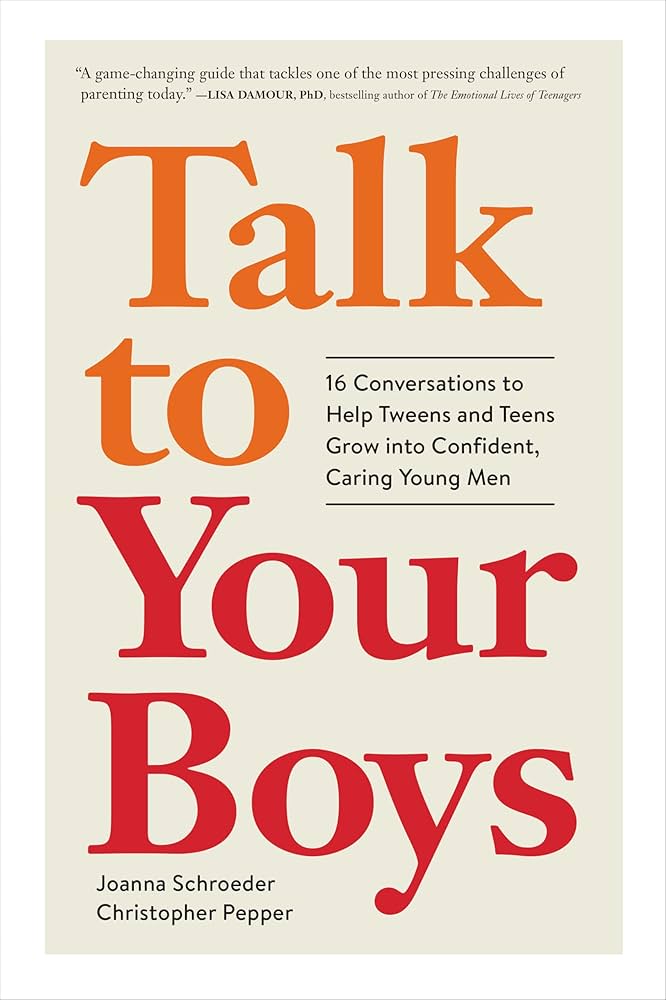We Need to Listen to Young Men

It used to be that nobody worried about boys. Boys could be rough-and-tumble, loud and abrasive, or even quiet and solitary, and nobody would get too concerned. “Boys will be boys,” they’d say. And the boys will be fine—or so we thought.
As it turns out, the boys are not alright.
A recent Gallup poll suggests that young men are among the loneliest people in the U.S. In an American Enterprise Institute study, over a quarter of men under 30 said they have no close friends. This figure may be shocking to some, but it wasn’t to us. That’s because we spent two years interviewing over 80 boys and young men for our book, Talk To Your Boys, in order to learn what is lacking in school, their friendships, and even from their parents.
This isn’t just a matter of missing out on parties or a chance to be on the Homecoming Court. Boys’ loneliness can sometimes lead to self-harm or suicide. Richard V. Reeves, the president of American Institute for Boys and Men, spelled out how much of a crisis this is in a recent essay:
“Boys and men account for 80% of the deaths from suicide in the United States. This amounts to almost 40,000 male deaths a year, about the same as the loss of women’s lives from breast cancer,” Reeves writes. “The real change in recent years has been a dramatic rise in loss of life from suicide among young men. Suicide rates among young men have risen by a shocking 30% since 2010.”
In addition to suicide, we also worry about boys externalizing their pain and hurting others. Data tells us that more than 95% of mass shootings are perpetrated by boys and men. Parents fear their boys will be more influenced by the “manosphere” than their own family’s values or even pulled toward extremism online.
Some elected officials are coming up with big solutions, like executive orders and giant policy reforms, and while we support a lot of these ideas, we don’t want to wait around for them.
Boys need connection and guidance now. They need trusted adults who will have real conversations with them, the types that encourage empathy and stimulate the logical, rational parts of their brain.
Boys need to hear from adults who care for them and are willing to take them seriously; adults who can speak to them with love and concern and provide guidance. If they don’t receive that, they may turn to the internet, finding inappropriate adult content or online hucksters who want to sell them a “self-improvement” plan for $29.99 a month.
So, yes, we need to talk to our boys and young men. And we need to listen to them.
This doesn’t seem like a revolutionary idea, but if you’ve experienced the silence of a teenager who slams his bedroom door, you know it’s far from simple. As tempting as it may be, letting them put on those headphones and disappear into their gaming consoles is not a solution. They need us, even if they don’t know how to tell us.
One thing that surprised us the most while researching our book was how deeply they crave meaningful conversations with their parents. Often, tween and teenage boys seem resistant when we sit down to have a serious talk. That’s likely because they’re afraid they’ll get a scolding or a lecture.
That’s why being strategic with your approach matters so much.
If you’re a concerned parent (or person who cares for a young man), here are a few suggestions to get started:
- Instead of: Stopping a boy as he comes in the door from school or practice to talk
- Try: Giving him some time to decompress at home before starting a big conversation
- Instead of: Letting yourself into his room and blurting, “I need to talk to you about something.”
- Try: Knocking on his door and asking if he has a few minutes to talk.
- Instead of: Launching into a big lecture
- Try: Introducing what you’re going to talk about and sharing how long it might take. For example, you can try:
“Hey, do you have a few minutes to talk about something? It’s not a big deal, but it’s important.”
or
“Hey, do you have about 10 minutes to talk this afternoon? I need to talk to you about something important, and I want to make sure we have enough time to talk about it before your sister comes home.”
Why does this framing matter? Because most adolescents resist the feeling of being controlled by their parents. It’s understandable if you think about it: Having someone barge into your room and immediately launch into a heavy topic would set most of us on edge!
Instead, show you’re respecting his time and energy by asking before talking. This also helps to alleviate any anxiety he may have about the conversation before it starts. These are things we do with other adults all the time, so why do we do it to our kids?
Once they’re engaged, try to keep it short and to the point. A bunch of short conversations over time–especially when discussing serious topics–tend to be more effective than one long, uncomfortable one, after all!
Finally, remember to be non-judgmental and to ask questions to learn how he feels and what he thinks.
Few things feel better to anyone–including boys and young men!–than being truly heard by someone who loves you.
Joanna Schroeder is a writer, editor, and media critic, and the mother of two sons and a daughter. Christopher Pepper is an award-winning health teacher, the father of two boys, and has been a foster parent. You can learn more about Schroeder and Pepper here.
Please note that we may receive affiliate commissions from the sales of linked products.




